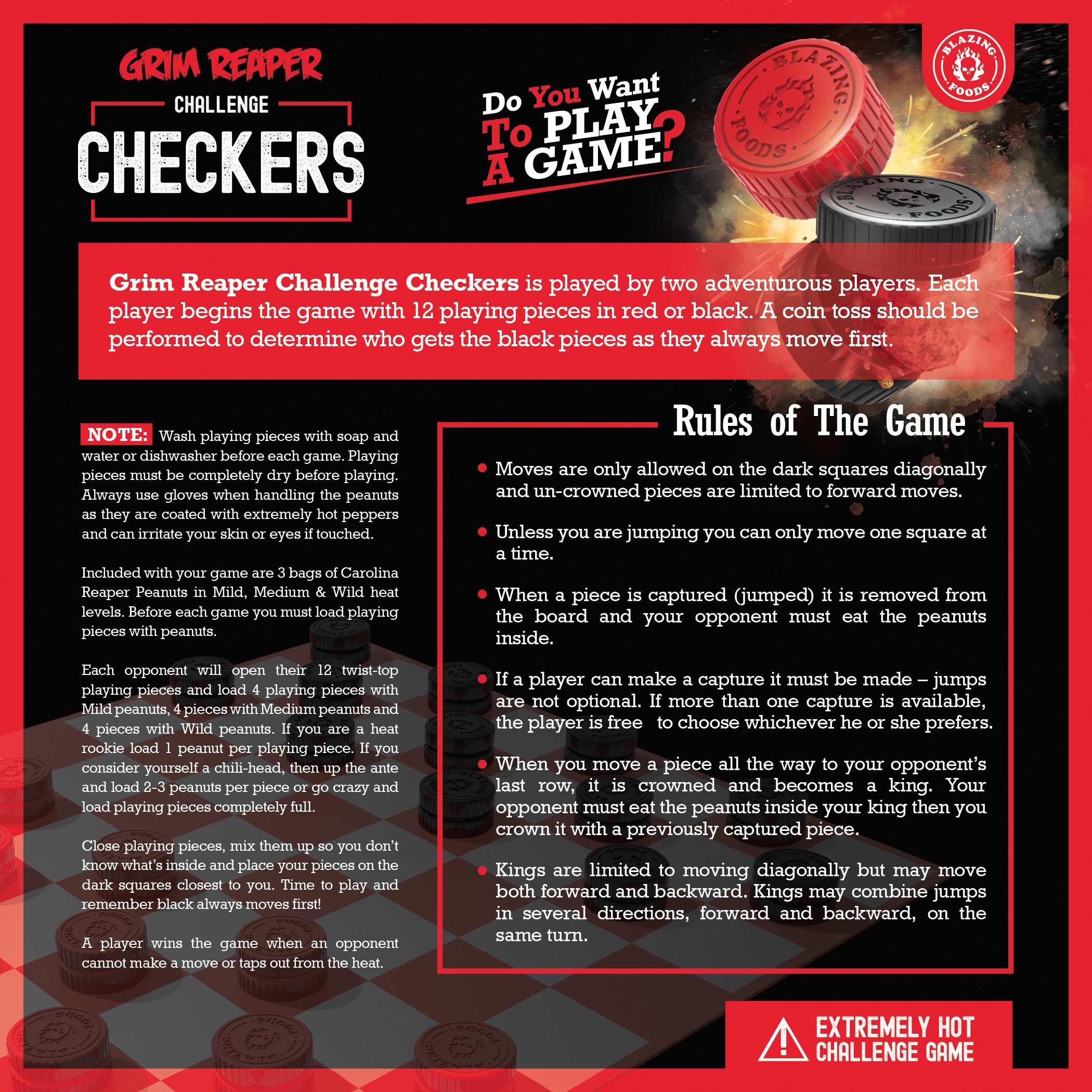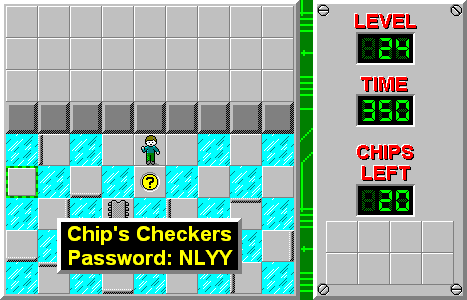

The US symptom checker frequently triaged simulated cases with possible severe COVID-19, bacterial pneumonia, and sepsis to stay home and possible neutropenic (low white cell count after chemotherapy) sepsis to seek medical attention within 24 hours. Among the simulated cases not referred, the USA and UK triaged a significant number that would typically have required early clinical assessment to ’stay home’. Singapore had the highest overall referral rate at 88% the US had the lowest at 38%. The symptom checkers in Singapore and Japan triaged twice as many cases for direct clinical assessment as the symptom checkers in the US and UK. These four distinct presentations were then varied in relation to one or more of the following: how long since symptoms had started the patient’s age and symptom severity.
#Usaco checkers challenge plus
These included: cough and fever a co-existing condition (high blood pressure) plus cough and fever suppressed immunity as a result of drug treatment plus cough and fever and shortness of breath and fever. The cases simulated common COVID-19 related signs/symptoms of varying severity and risk factors.

The researchers wanted to see if the symptom checkers were able to differentiate mild from severe COVID-19, and how well they picked up COVID-19 ‘mimickers’ such as bacterial pneumonia and sepsis in 52 standardised case scenarios. The symptom trackers included: the Singapore COVID-19 Symptom Checker Stop COVID-19 Symptom Checker (Japan) CDC Coronavirus Symptom Checker (US) and 111 COVID-19 Symptom Checker (UK).ĬOVID-19 death rates in Singapore and Japan are comparatively low in the US and the UK they are comparatively high. They therefore looked at the ability of national government-sponsored digital symptom checkers in use in Singapore, Japan, the US and the UK, to correctly triage people in need of a medical assessment and/or treatment.
#Usaco checkers challenge series
Identifying which patients with COVID-19 require treatment is difficult, because the infection can mimic common conditions that rarely require medical attention and because there are no clinical signs or symptoms that reliably predict who will progress to severe disease, note the researchers.ĭigital symptom checkers combine a series of set questions and pre-determined responses to advise a person on the most appropriate course of action.īut as yet, there is hardly any evidence for the effectiveness or safety of symptom checkers for prioritising treatment (triaging) during a pandemic, say the researchers. The availability and use of symptom checkers is on the rise, and they are currently being used at a national level to pick up COVID-19 infection. US and UK versions failed to pick up severe COVID-19, bacterial pneumonia, or sepsisĭigital COVID-19 ‘symptom checkers’ may stop some patients from getting prompt treatment for serious illness, suggests an international case simulation study, published in the online journal BMJ Health & Care Informatics.īoth the US and UK symptom checkers consistently failed to identify the symptoms of severe COVID-19, bacterial pneumonia, and sepsis, frequently advising these cases to stay home, the findings indicate. Digital COVID-19 ‘symptom checkers’ may delay treatment for serious illness


 0 kommentar(er)
0 kommentar(er)
